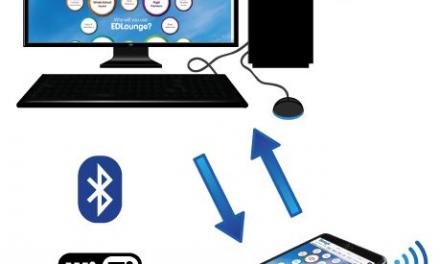Digital literacy is now a cornerstone key skill for many careers and there is a growing impetus for it to be recognised as being as important as being able to read and write to a level where it felt that it is a comprehensively gained life skill.
In the past, digital literacy was known generically as ICT and was originally untested. It did not sit alongside the core subjects of English, maths and science and was often based around learning packages such as Microsoft Office or activities which included internet browsing or gaming.
The recently announced 2014 curriculum has placed a much higher level of importance on digital literacy and instead of session planning being based around general skills within ICT, there is to be a marked move towards computer science. However welcome this may be to those in the secondary sector who are looking towards encouraging students to focus on possible career paths, there are those who are asking whether the curriculum guidelines of teaching primary pupils basic computer programming is necessary at such a young age.
Supporters of the move to include lessons to children who may only be 5 feel that technical literacy should be as mainstream as English literacy and numeracy is in the primary school curriculums.
Those who support the development of digital literacy down to the younger years liken the process to that of oral communication. They feel that as well as being able to basically operate a computer there is importance in understanding how the mechanics work, if a person knew how to speak but there was no writing, there would be very little function within society.
There are already moves afoot to bring coding into the classrooms through the volunteer led Code Club. They are an after school group which is led by volunteers and their mission is to take coding into schools. Their target is to be working with 15% of primary schools in the UK by the end of next year. Their sessions start with the basics and then start to learn Python – a programming language – which will in turn give them the skill to be able to create their own animations or games.
There are also calls for more to be done now to ensure the embedding of the recent advances of digital literacy across the whole of the curriculum rather than it being seen still as a stand-alone subject. Standardisation across schools is another area which it is felt needs to be examined as whilst some embrace the importance of digital literacy; there are some which don’t feel the need to focus effort on implementing it into other subjects.
The embedding of lessons in digital literacy and the rise in use of social media across the curriculum is set to open up a whole host of new educational tools and teaching activities for teachers.
The importance in society today of the role of social media for those looking to find their favoured career path was revealed in a survey conducted by Pearson. The results showed that one in six 15-year-olds use social media for careers advice, with just 1% of 15-year-olds feeling that careers books are the best way to help them make life decisions in which sector they would like to work in.
Whilst it is still early days in the relationship between the importance of digital literacy and its direct parallel to the key skills of English, maths and science, as well as the training ahead for teachers themselves to be able to utilise digital technology in the classroom, the overall feeling is a positive one in that within five years students will understand how the digital world works and this will be seen as just as important as reading, writing and maths currently is.









